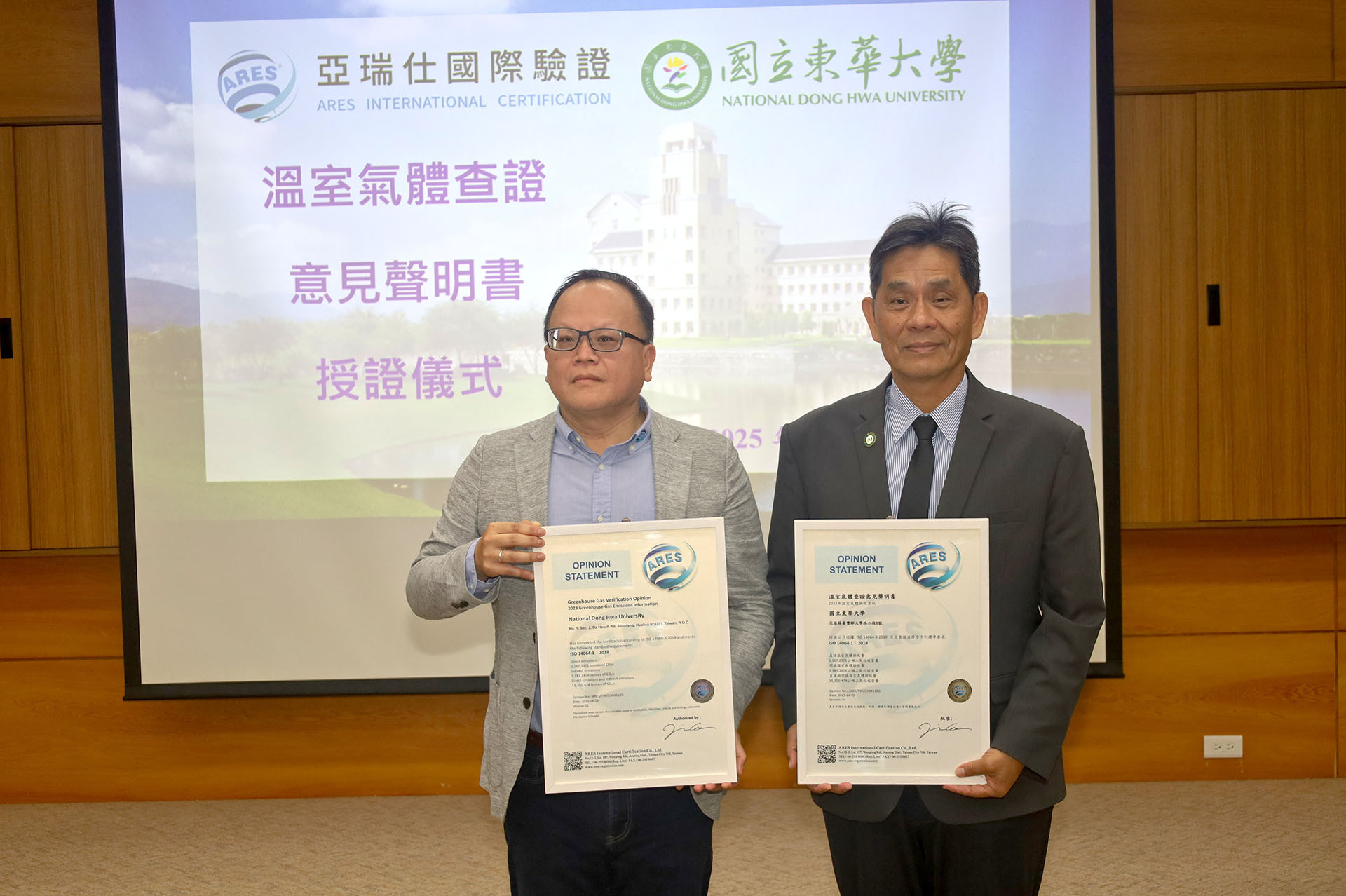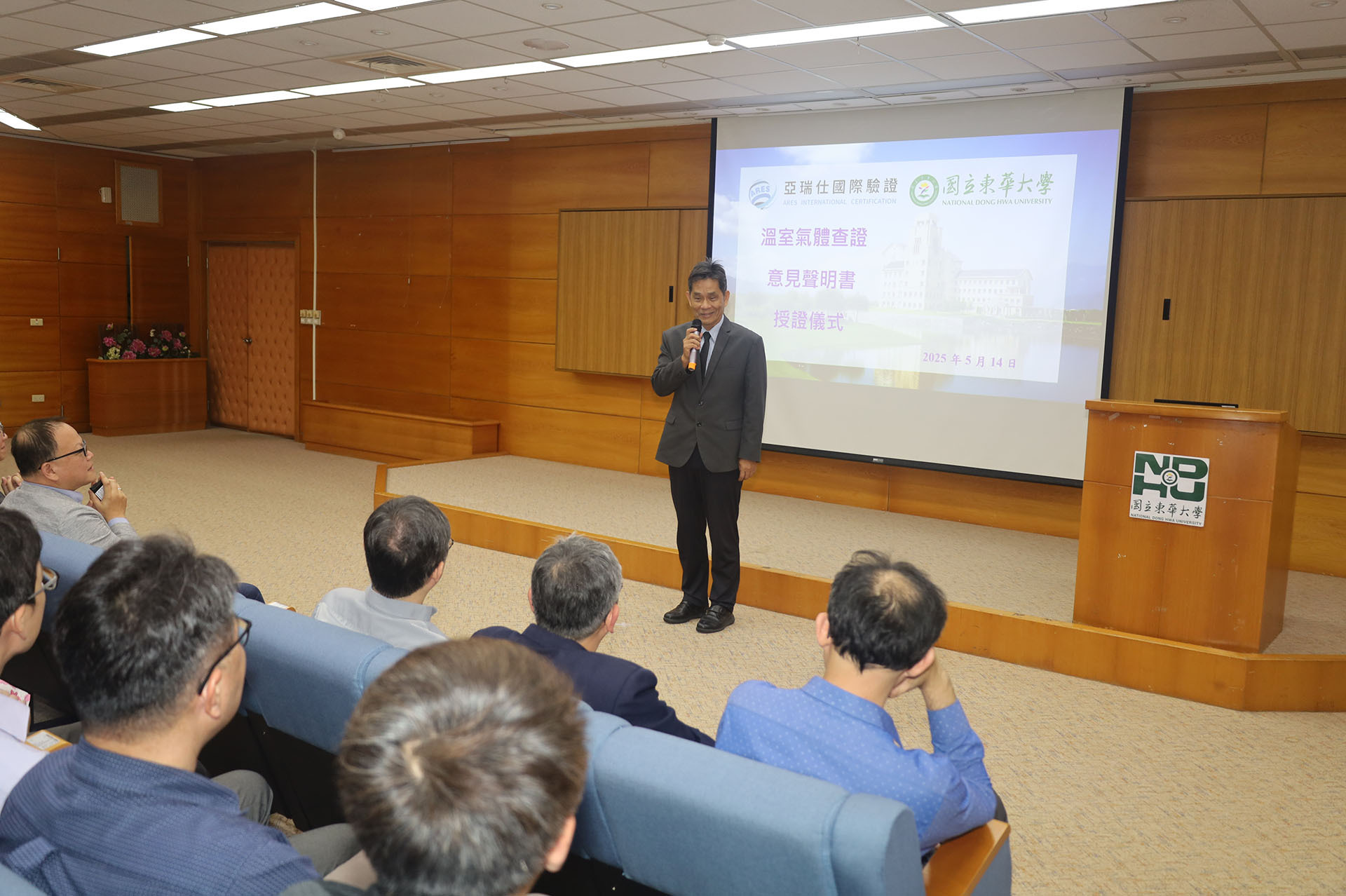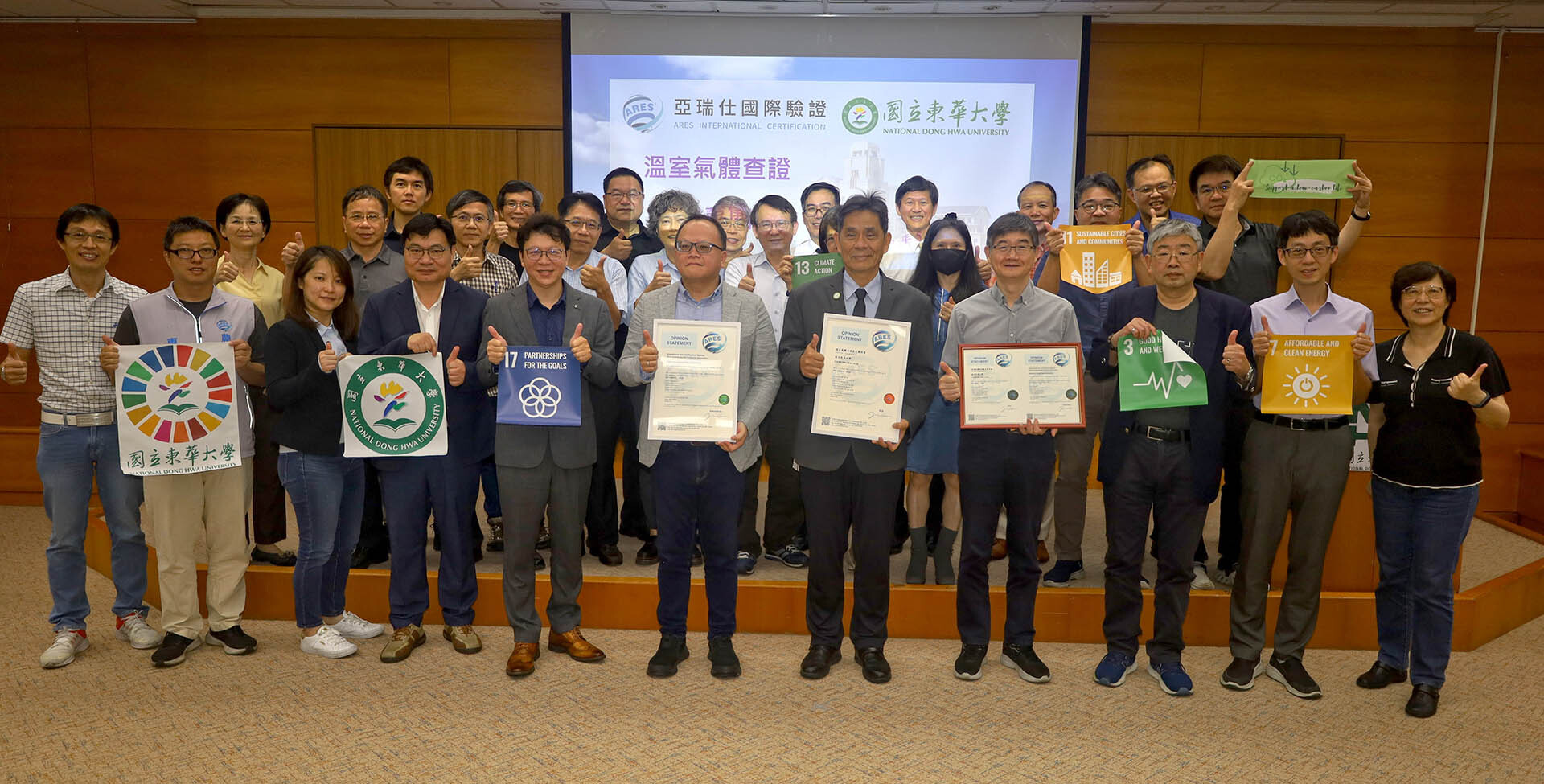NDHU Strengthens Its Commitment to 2050 Carbon Neutrality Following GHG Inventory Certification
In alignment with the United Nations and Taiwan’s Sustainable Development Goals, and in support of Taiwan’s 2050 Net-Zero Emissions Policy, National Dong Hwa University (NDHU) launched a self-conducted greenhouse gas (GHG) inventory in October 2024, following the ISO 14064-1:2018 international standard. The inventory covers 2023 data for the Shoufeng Campus and includes Category 1 direct emissions, Category 2 indirect emissions from purchased electricity or steam, and Category 4 emissions from waste treatment. Despite the complexity of the task, all university departments and offices worked collaboratively under the coordination of the Center for Sustainable Development and the Office of General Affairs to compile and consolidate extensive data. Total emissions were calculated at 11,350.478 metric tons of CO₂ equivalent (tCO₂e), primarily from stationary and mobile fuel combustion, fugitive emissions, and electricity consumption.
In March 2025, NDHU successfully passed on-site verification conducted by ARES International Certification Co., Ltd. To formally commemorate this achievement, a certification ceremony was held on May 14, 2025, recognizing the university’s adherence to rigorous standards in GHG inventory practices. This accomplishment lays a strong foundation for annual inventory updates, emissions reduction planning, and ongoing refinement of NDHU’s carbon neutrality roadmap. President Hui-Mi Hsu emphasized that the success of the GHG inventory reflects the joint efforts of administrative and academic sectors. He noted that third-party verification not only affirms the credibility of the process but also highlights NDHU’s commitment to environmental accountability and social responsibility.
As early as in 2021NDHU first declared its goal of achieving carbon neutrality by 2050. In practice, the university completed carbon sink assessments of green spaces on the Shoufeng and Meilun campuses in 2023. Looking ahead, NDHU will continue to update its GHG data annually, monitor key emission sources, adopt the ISO 50001 Energy Management System, assess the feasibility of converting existing solar panels for on-site use, and gradually phase out energy-intensive equipment. Simultaneously, the university will strengthen promotion of eco-labeled products and foster a low-carbon, sustainable lifestyle—continuously optimizing its roadmap and advancing steadily toward carbon neutrality.





